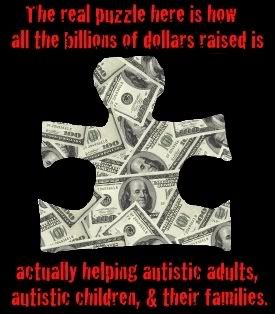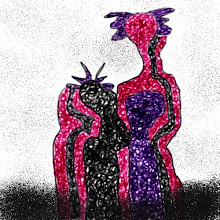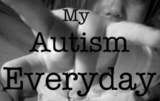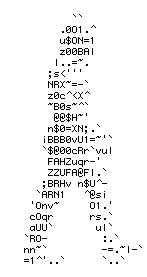
Dr. Gupta just interviewed Dr. Poling on CNN (will link to clip once its available online). Dr. Poling seemed to say that Hannah has mitochondrial DYSFUNCTION not disease. This is utterly confusing. Based on the court documents, which gives the biopsy results, I am unsure how Hannah is thought to have only mitochondrial dysfunction. She was diagnosed with oxidative phosphorylation disease (see below), which is classified as mitochondrial disease (or disorder, depending on your source, but for this sake disease and disorder are synonymous, however dysfunction is much different), certainly NOT dysfunction. Just a few weeks ago, on Larry King Live, Dr. Poling was referring to Hannah as having mitochondrial disorder (again, not dysfunction).
On Age of Autism (to read copy & paste this: http://www.ageofautism.com/2008/03/dr-jon-poling-o.html), Dr. Poling then said this:
So, is he "opting" for dysfunction instead of disease? One can only wonder why. Compare that to what is in the court documents (available here: http://www.huffingtonpost.com/david-kirby/the-vaccineautism-court-_b_88558.html):
"Thus, I will refer to Hannah’s metabolic condition as a mitochondrial dysfunction, not a mitochondrial disease."
On October 4, 2001, Dr. John Schoffner, at Horizon Molecular Medicine in Norcross, Georgia, examined CHILD to assess whether her clinical manifestations were related to a defect in cellular energetics. Pet. Ex. 16 at 26. After reviewing her history, Dr. Schoffner agreed that the previous metabolic testing was "suggestive of a defect in cellular energetics." Id. Dr. Schoffner recommended a muscle biopsy, genetic testing, metabolic testing, and cell culture based testing. Id. at 36.
FYI: This (above) refers to the signs mitochondrial dysfunction (similar to what my own daughter has). Those results, prompted this testing:
A CSF organic acids test, on January 8, 2002, displayed an increased lactate to pyruvate ratio of 28,1 which can be seen in disorders of mitochondrial oxidative phosphorylation. Id. at 22. A muscle biopsy test for oxidative phosphorylation disease revealed abnormal results for Type One and Three. Id. at 3. The most prominent findings were scattered atrophic myofibers that were mostly type one oxidative phosphorylation dependent myofibers, mild increase in lipid in selected myofibers, and occasional myofiber with reduced cytochrome c oxidase activity. Id. at 7. After reviewing these laboratory results, Dr. Schoffner diagnosed CHILD with oxidative phosphorylation disease. Id. at 3. In February 2004, a mitochondrial DNA ("mtDNA") point mutation analysis revealed a single nucleotide change in the 16S ribosomal RNA gene (T2387C). Id. at 11.
Hannah showed signs of mitochondrial dysfunction, which led to the biopsy and other testing. Those results showed that she had oxidative phosphorylation disease.
I'm not being stubborn about semantics here. There is a BIG difference between DYSFUNCTION and DISEASE. So, Dr. Poling, what exactly does Hannah have--according to her test results? It is deceiving to say she has dysfunction when, it appears, that is not the case. Dr. Poling can call whatever his daughter has, whatever he wants. However, if he is going to be the spokesperson for autism-vaccines-mitochondria business, he needs to not blur the truth.
I think it's very possible that some children with regressive autism could have a form of mitochondrial disease, and certainly more would be found to have mitochondrial dysfunction (as it is found in many neurological conditions, see here, here, here, and in other studies available online). But to point fingers at vaccines, with zero scientific evidence, is shameful. Obviously, it won't hurt for scientists to look into any possible mitochondrial-autism connection, and if it means anything.
In our case, our daughter's irregular test results are all related to her static encephalopathy and autism, just like her seizures, and other health issues are all related. My daughter was born this way, vaccines did not effect her negatively at all. I am grateful to the vaccines, as they have prevented additional hospitalizations when she contracted chicken pox and the flu. Had she not been inoculated for those, her illness would have been prolonged and more severe. Instead, we were able to care for her at home, and she was sick for a couple of days with each.
One last note, this study showed that intense exercise can cause mitochondrial dysfunction. What doesn't cause mitochondrial dysfunction? And, can we really draw any conclusions from mitochondrial dysfunction, what it means to autistics, how it truly affects humans, and what (if anything) could be done to prevent it? Certainly not yet, and maybe we'll never know. There is a possibility that mitochondrial dysfunction means very little, when it comes to autism and treatment, and also possible that the majority of us would be diagnosed with it in the future (so then, are we all at risk of getting autism from vaccines????).
Interesting enough, Jenny McCarthy, David Kirby, and Dr. Poling will all be on Larry King Live tonight. Should be one heck of a time.
More on my take on the whole mito-autism thing here.








 This Way of Life
This Way of Life









 "Autism is a way of being. It is pervasive; it colors every experience, every sensation, perception, thought, emotion, and encounter, every aspect of existence. It is not possible to separate the autism from the person."
- Jim Sinclair
"Autism is a way of being. It is pervasive; it colors every experience, every sensation, perception, thought, emotion, and encounter, every aspect of existence. It is not possible to separate the autism from the person."
- Jim Sinclair
























1 comment:
Hi There is at least one manuscript published on the topic mitochondrial dysfunction in a subgroup of children with autism
J Autism Dev Disord. 2004 Dec;34(6):615-23.
Relative carnitine deficiency in autism.Filipek PA, Juranek J, Nguyen MT, Cummings C, Gargus JJ.
Department of Pediatrics, College of Medicine, University of California, Irvine, CA, USA.
A random retrospective chart review was conducted to document serum carnitine levels on 100 children with autism. Concurrently drawn serum pyruvate, lactate, ammonia, and alanine levels were also available in many of these children. Values of free and total carnitine (p < 0.001), and pyruvate (p = 0.006) were significantly reduced while ammonia and alanine levels were considerably elevated (p < 0.001) in our autistic subjects. The relative carnitine deficiency in these patients, accompanied by slight elevations in lactate and significant elevations in alanine and ammonia levels, is suggestive of mild mitochondrial dysfunction. It is hypothesized that a mitochondrial defect may be the origin of the carnitine deficiency in these autistic children.
The manuscript is worth the reading
Post a Comment